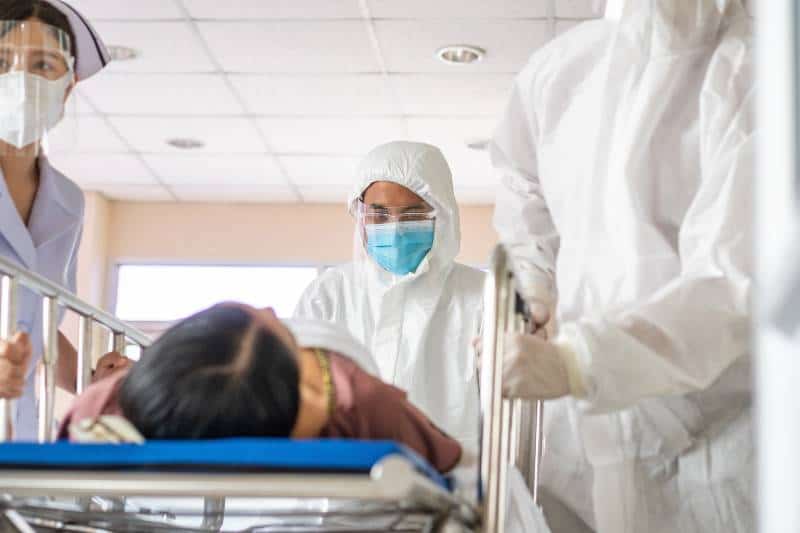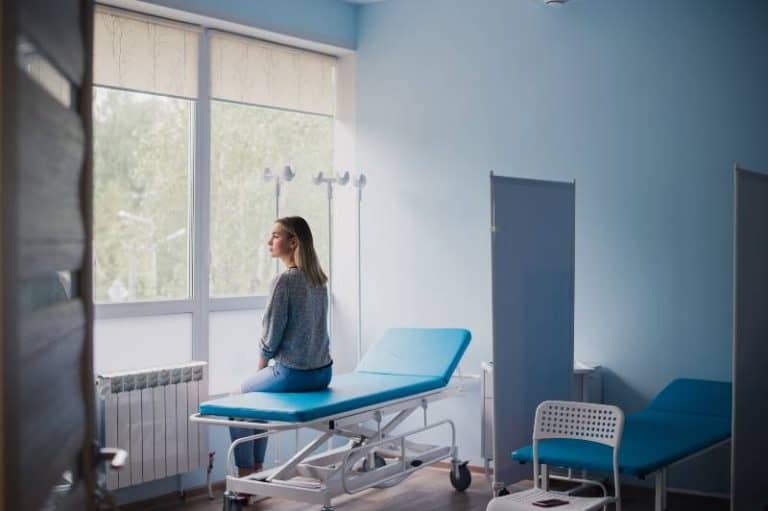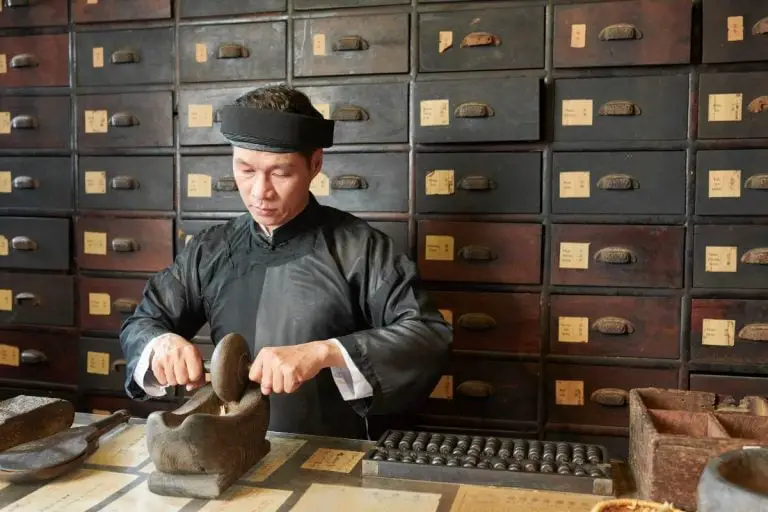Healing Haven: Why Thailand Tops Medical Tourism
Are you considering taking a medical trip to Thailand? If so, you’re not alone! Medical tourism has become increasingly popular in recent years due to the broad array of healthcare services available and the unbeatable combination of quality care and affordability. From an improving infrastructure and modern facilities to expansive Thai culture, natural beauty, and warm hospitality—there are many reasons why people from all around the world choose this vibrant medical tourism destination for their medical needs. In this blog post, we will explore why Thailand is now one of the leading countries for medical tourism and discuss what sets it apart from other locales.
According to the Medical Tourism Index (MTI) 2020-2021, Global Destination conducted by the International Healthcare Research Center, Thailand’s medical tourism industry has achieved a remarkable position among 46 countries. It is ranked within the top 5 based on factors such as Destination Attractiveness and Medical Tourism Cost. This recognition highlights the appeal and affordability of Thailand as a premier destination for medical tourism.
Key Takeaways
- With world-class healthcare facilities and competitive pricing, Thailand offers medical tourists an attractive combination of quality and affordability.
- Beyond the medical procedures, Thailand provides a holistic experience, allowing patients to recover in beautiful, serene settings and immerse in the country’s rich culture.
- Accredited Thai hospitals maintain high global standards, ensuring that medical tourists receive safe and efficient treatments.

History of Medical Tourism in Thailand
Medical tourism, as a concept, has roots that go deep into history, but when it comes to Thailand, the emergence of this industry can be traced back to the 1980s and 1990s. It was during this time that Thailand began to observe a steady increase in the number of international patients, largely due to the country’s ability to offer high-quality medical care at a fraction of the cost seen in Western countries.
Let’s take a trip down memory lane and chart this fascinating journey:
1. The Humble Beginnings in the 1980s-1990s
In the late 20th century, Thailand’s reputation as a popular tourist destination was already solidified, thanks to its idyllic beaches, rich culture, and tantalizing cuisine. However, it began to witness an interesting trend – travelers started seeking medical treatments, particularly procedures that were either too expensive or had long waiting lists in their home countries. Think of it as someone from the US traveling to Thailand for a hip replacement, not just because it’s cheaper, but also because the hospital feels more like a five-star hotel than a sterile medical facility.
2. Government and Medical Facilities Joining Hands
Recognizing the potential of this budding industry, both the Thai government and the private medical sector took active measures to fuel its growth. The government, for example, introduced favorable policies that eased visa regulations for medical tourists and supported the establishment of internationally accredited hospitals. An easy-to-understand example is the “Medical Visa” which allows patients and their companions to stay longer for treatments.
Meanwhile, Thai hospitals made concerted efforts to raise their standards. The famed Bumrungrad International Hospital in Bangkok is a stellar example. By the early 2000s, it became the first hospital in Asia to be accredited by the Joint Commission International (JCI), which is a testament to its world-class standards. Just imagine walking into a hospital that feels like a luxury hotel, with interpreters ready to assist, a variety of international cuisines on the menu, and doctors who’ve often trained in Europe or America!
3. Strategic Marketing and Holistic Healing
Thailand didn’t just bank on its cost-effective treatments. Medical facilities and the government cleverly marketed the country as a holistic healing destination. This meant that after your dental work, you could recover on a serene beach in Phuket, or post your heart surgery, you could meditate in a tranquil retreat in Chiang Mai.
4. Embracing Technology and Continuous Improvement
Thailand continually stayed abreast with the latest in medical technology. Thai hospitals started offering cutting-edge treatments, from robotic surgeries to innovative fertility treatments, ensuring they remained competitive on a global scale.
The Pull Factors
Medical tourism in Thailand has emerged as a robust industry, driven by several compelling reasons that lure patients from around the world. Let’s delve deeper into these magnetizing factors:
World-class Healthcare Facilities
Thailand’s healthcare infrastructure is on par with the best in the world. Over the years, Thailand has invested heavily in building state-of-the-art medical facilities, ensuring that patients have access to the latest technologies and equipment.
Example: Consider hospitals like Bumrungrad International Hospital in Bangkok or the Bangkok Hospital Group. These facilities have been designed keeping the global patient in mind, which means they resemble luxury hotels more than traditional hospitals. They come complete with amenities like in-house interpreters, plush patient rooms, and even gourmet dining options.
Make sure to take a moment and check out an article I wrote about the top 16 Best Hospitals in Thailand for Expats. These hospitals are renowned for their world-class medical facilities, highly skilled doctors, and exceptional patient care. Whether you’re a resident or a visitor, having access to quality healthcare is crucial, and these hospitals are here to meet your needs. Don’t miss out on this comprehensive guide that will help you make informed decisions about healthcare options in Thailand!
Highly Qualified Medical Professionals:
Thai medical professionals, including doctors, surgeons, and nurses, often receive training from renowned institutions globally. Their expertise is further honed by the sheer volume of cases they handle, given the popularity of medical tourism in the nation.
Example: It’s not rare to meet a Thai cardiac surgeon who has trained in the US or a dermatologist who has pursued advanced courses in Europe. This blend of local understanding with international training makes them uniquely qualified to treat a diverse set of patients.
Competitive Costs Compared to Western Countries:
One of the primary drivers for medical tourism to Thailand is the significant cost advantage it offers. High-quality medical care in Thailand can come at a fraction of the price compared to countries like the US, Australia, or the UK, without any compromise on the quality of care.
Example: A hip replacement surgery, which might cost upwards of $30,000 in the US, can be performed in Thailand for as low as $7,000 to $15,000, inclusive of all associated costs. This stark price difference, especially for elective procedures not covered by health insurance, makes Thailand an attractive destination for many.
Wide Range of Available Treatments
Thailand’s medical tourism spectrum is vast. It doesn’t just limit itself to a handful of specialties. From a cosmetic surgery to complex cardiac procedures, from dental treatments to fertility clinics, Thailand has positioned itself as a one-stop medical tourism destination.
Example: A patient could fly in for a dental implant, have a LASIK eye surgery, and perhaps even indulge in some dermatological treatments – all in one trip and at costs that don’t break the bank.
Additional Benefits for Medical Tourists in Thailand
Thailand, often hailed as the “Land of Smiles,” is a mosaic of breathtaking landscapes, rich culture, and warm-hearted locals. For medical tourists, the allure of Thailand goes well beyond its impeccable healthcare services. Let’s delve into some of these additional benefits that make Thailand not just a place for healing, but also for holistic rejuvenation.
Exotic Vacation Destinations and Recuperation Spots
Thailand is a treasure trove of scenic beauty, ranging from pristine beaches to verdant jungles and tranquil mountains. Post-treatment, patients can choose to recuperate in these serene settings, turning their medical trip into a rejuvenating getaway.
Example: Imagine recovering from a procedure in a luxurious resort in Phuket, with the soothing sound of waves in the background. Or, for those who’ve had less intensive treatments, taking a gentle stroll amidst the rice terraces of Chiang Mai. These experiences not only aid in physical healing but also provide mental tranquility.
Cultural Experiences and Attractions:
Thailand is steeped in history and culture, offering medical tourists a chance to immerse themselves in its rich tapestry. From ancient temples and grand palaces to vibrant markets and traditional performances, there’s a plethora of cultural experiences waiting to be explored.
Example: After a dental procedure, one could visit the majestic Grand Palace in Bangkok, or witness a traditional Thai dance performance. For the more adventurous, taking a cooking class to learn the art of crafting the perfect Pad Thai or Green Curry could be an enriching experience.
Friendly Locals and Ease of Communication:
The Thai people are known for their hospitality and warmth. This friendly demeanor extends to the hospitals and clinics, making patients feel at ease. Moreover, the language barrier, which could be a concern in many countries, is significantly reduced in Thailand, especially within the medical community.
Example: It’s common for medical tourists to note the comforting smiles and reassuring gestures of the Thai medical staff. And while not every local speaks fluent English, in medical facilities catering to international patients, English-speaking staff is the norm. This ensures clear communication, right from the reception desks to the operating rooms.
Safety and Accreditation
The exponential growth of Thailand as a medical tourism hub can be attributed to not just its cost-effectiveness or diverse treatment options, but also its commitment to safety, quality, and international standards. Here’s a deep dive into the safety nets and accreditations that have fortified Thailand’s position in global medical tourism:
International Standards and Certifications of Thai Hospitals
- Description: Many Thai hospitals catering to international patients hold globally recognized certifications, a testament to their adherence to international medical standards.
- Example: The Joint Commission International (JCI) is one of the world’s most prestigious accrediting bodies in the healthcare sector. Several Thai hospitals, including the famous Bumrungrad International Hospital and Bangkok Hospital, have secured JCI accreditation. This signifies that their standards of care, patient safety protocols, and medical service quality are on par with the best in the world.
Precautions for Tourists to Ensure Safety and Quality Care
- Research Thoroughly: Before selecting a hospital or clinic, patients should conduct detailed research. Look into the hospital’s accreditations, patient reviews, the qualifications of the medical professionals, and any affiliations with international medical institutions.
- Communication is Key: Ensure clear communication with your medical team. Many hospitals offer interpreters, but always clarify doubts and understand the treatment plans, risks, and post-care routines. Hospitals catering to international patients typically have English-speaking staff, which aids in smooth communication.
- Consult with Home Doctors: Before undergoing a procedure in Thailand, consult with your primary care doctor in your home country. This provides a secondary perspective and can help in post-treatment care continuity once you return home.
- Travel Insurance: While Thailand offers affordable medical treatments, it’s wise to get travel insurance that covers medical treatments or any unforeseen complications, ensuring financial protection.
- Be Aware of Travel Advisories: Always check current travel advisories from reliable sources like your country’s embassy or consulate. They provide up-to-date information on any potential safety concerns or areas to avoid.
- Follow Post-Treatment Guidelines: Especially if you’re recovering in a vacation setting, it might be tempting to indulge in activities sooner than recommended. Adhere to post-treatment guidelines rigorously to avoid complications.
- Stay Connected: Keep family or friends informed about your whereabouts and medical plans. It’s always good to have someone aware of your situation, especially when in a foreign country.
Challenges and Concerns
While Thailand is a prominent player in the global medical tourism arena, it’s not devoid of challenges and concerns. Potential medical tourists need to be aware of these in order to navigate their journey smoothly. Let’s discuss some of the primary issues faced:
Potential Language Barriers Outside of Medical Facilities:
While English is commonly spoken within the walls of major hospitals catering to international patients, the same proficiency may not be found ubiquitously outside. From street vendors to local transportation, the predominant language is Thai, which can lead to potential miscommunications.
Solution: Equip yourself with basic Thai phrases, especially those related to directions, food, and emergencies. Additionally, utilizing translation apps or carrying a small phrasebook can be immensely helpful. Engaging a local guide or using services that cater to tourists can also bridge the language gap.
Take a look at this article I’ve written about “those ” It’s a valuable resource that can assist you in adapting to your new surroundings. Embrace its insights to navigate your expat journey with ease.
Navigating the Healthcare System
Every country’s healthcare system is unique, and Thailand is no exception. From appointment bookings to payment methods, or even understanding the hierarchy of medical professionals, it can be slightly overwhelming for a foreigner.
Solution: Research thoroughly beforehand. Many hospitals have international patient departments that facilitate smooth navigation for foreigners. It’s also advisable to work with medical tourism facilitators or agencies that have experience in assisting international patients in Thailand. They can provide insights, streamline processes, and ensure you’re following the right protocols.
Knowing the Right Facilities for Specific Treatments
While many Thai hospitals offer a plethora of services, not all are specialists in every domain. It’s crucial to identify the right facility for your specific treatment to ensure optimal care.
Solution: Instead of opting for a hospital-based solely on its overall reputation, delve deeper into its specializations. For instance, while one hospital might be renowned for cardiac care, another might excel in orthopedics. Patient testimonials, online forums, and consultation hospital-based with medical tourism experts can guide you to the right facility for your needs.
Etiquette
Cultural Differences: Understanding and respecting local customs and etiquette consultations is vital. What’s acceptable in one’s home country might be frowned upon in Thailand. Awareness of basic cultural norms can enhance the overall experience.
Post-Treatment Follow-ups: Ensuring continuity of care after returning to one’s home country can be a challenge. It’s important to coordinate with both the Thai medical team and your local doctor to ensure seamless follow-ups.

Why is Medical Tourism Popular in Thailand FAQs
How safe are the hospitals and clinics in Thailand for medical tourists?
Thailand features some of the most prestigious healthcare establishments in the world. Many are internationally accredited and adhere to strict patient safety protocols. Moreover, they have experienced English-speaking staff who are well-versed in international medical standards and procedures.
Can you combine medical procedures with vacation activities in Thailand?
Medical tourists can opt for a holiday package encompassing medical treatments and vacation activities in Thailand. Many hospitals feature specialized healthcare packages that combine sightseeing tours, hotel stays, and spa services with medical treatment and checkups, ensuring seamless transitions between all the components of your trip.
How does the Thai government support medical tourism?
The government of Thailand is committed to making the country a hub for medical tourism, and has been investing heavily in its infrastructure. It also offers special tax-deductible subsidies for international patients, aiding them in their treatments. Additionally, several hospitals offer health packages that provide significant discounts on hotel stays and local transportation services.
Are there English-speaking doctors and nurses in Thai hospitals?
Yes, many hospitals in Thailand have dedicated English-speaking teams of doctors and nurses who are proficient in international medical standards and regulations. Additionally, most major healthcare establishments also feature interpreters to ensure smooth communication between patients and medical staff.
What are the potential risks or challenges of medical tourism in Thailand?
Challenges of medical tourism in Thailand include potential language barriers outside of medical facilities, navigating the healthcare system, knowing the right facility for specific treatments, and cultural differences. To ensure a seamless experience, it’s best to conduct thorough research beforehand and engage qualified facilitators or travel agents who specialize in health tourism.
Conclusion
Thailand is an ideal destination for medical tourism. From the world-class healthcare facilities to the competitive pricing and comprehensive care provided, it offers a safe and reliable alternative for travelers looking to receive high-quality medical services. Additionally, its natural beauty and vibrant culture provide an escape from everyday life where patients can enjoy a serene environment during recovery.
For those hoping to pursue medical tourism overseas, Thailand has become one of the leading destinations in recent years because of its trustworthy reputation for safety protocols and standards. With so much potential for a rewarding experience, it’s no wonder that more and more travelers are choosing Thailand as their preferred location for medical procedures.
To keep up to date with news on healthcare facilities available in Thailand or get advice on living there, subscribe to our newsletter today or reach out to us with any queries or concerns you may have.






